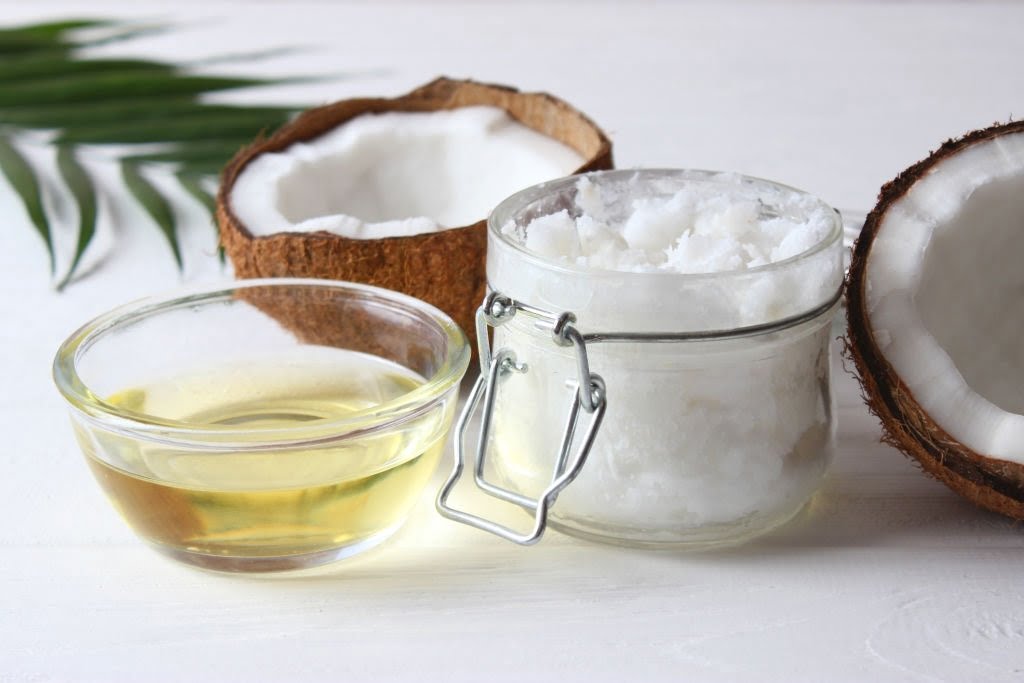According to legends, coconut oil is a mystical elixir that may be utilized in both the kitchen and the bathroom for a variety of purposes and there are many benefits of coconut oil on the skin too. The internet is brimming with information about this tropical oil, from hair care to natural skincare to recipes.
However, with so much information on coconut oil uses for skin available, it’s difficult to discern what’s hype and what’s genuine. Therefore, if you’re looking to cut through the clutter and truly understand the benefits of coconut oil for skin, we’re here to assist you.
We’ll look at the coconut oil used for skin, how it’s manufactured, the best type of coconut oil for skin, how to use coconut oil for your skin, and which skin types it’s ideal for. We’ll also cover frequently asked questions about the benefits of coconut oil on skin and hair and general questions about this plant-based elixir.

Top 10 Benefits Of Coconut Oil On Skin
If you have been wondering “what are the benefits of using coconut oil on skin?” well rest assured as we have a comprehensive list here.
It moisturizes.
Coconut oil is composed of medium-chain fatty acids that aid in the reduction of dryness and the retention of moisture in the skin.
It aids in the protection of the skin.
Coconut oil acts as a protective barrier, shielding the skin from environmental toxins, grime, and other nasty substances encountered on a daily basis.
It hydrates the skin.
Apply a small amount of coconut oil to your skin and immediately feel its softening, smoothing effect. And over time, it can really aid in texture improvement.
It reduces the appearance of fine lines and wrinkles.
When used regularly, coconut oil can actually assist to minimize the effects of aging. It absorbs into the skin and minimizes the appearance of fine lines and wrinkles.
It alleviates transient flushing.
This nutty oil has a calming, soothing effect and can assist in reducing transient redness when it occurs.
It is an antioxidant.
Coconut oil for the face has antioxidant and phytonutrient (plant compound) components that can assist improve your nutrient factor and protect you from environmental stressors that accelerate the indications of aging.
It is quickly absorbed.
Coconut oil absorbs quickly and readily into the skin, giving immediate hydration and protection.
It’s an excellent exfoliant base.
If you’re into do-it-yourself skin care, coconut oil works well as an exfoliator when combined with granular ingredients such as sugar or coarse sea salt. Simply combine the two, apply to your face, and wipe with a warm, damp cloth.
It calms inflamed skin.
If you are prone to irritations or sensitivities, coconut oil can help ease pain and provide calming relief.
It smells fantastic.
Who doesn’t adore the delectable, tropical coconut aroma? Along with the rest of this oil’s assets, it’s fragrance is a bonus.
How Is Coconut Oil Made?
Coconut oil is extracted from the coconut fruit. What a shocker!
To be more precise, it is formed from the coconut’s white meaty interior. Virgin or extra virgin coconut oil is extracted from fresh coconut flesh, whereas refined coconut oil is extracted from dried coconut meat.
Virgin coconut oil is produced by pressing the fruit using one of several distinct ways. Heat is used to press expeller-pressed oil.
The process of refining coconut oil begins with pressing the copra and then heating it to remove the odor. After that, it is processed and filtered to eliminate any remaining germs or debris, which may involve the use of chemicals.
Organic coconut oil is produced without the use of synthetic pesticides or other potentially harmful chemicals.
Additionally, coconut oil is solid at ambient temperature but becomes liquid at warmer temperatures. Generally, you must rub it between your hands to convert it to a liquid state before using it.

How To Care For Your Skin With Coconut Oil?
Coconut oil skin advantages are numerous as an all-in-one wonder liquid. It can be used on the skin and hair in a variety of ways. When it comes to the skin, pure coconut oil can be used as a cleanser, moisturizer, and makeup remover.
Coconut oil for skin, depending on your skin type, might be an extremely beneficial addition to your routine. From hydrating to decreasing the symptoms of age to calming irritated skin, it possesses a plethora of beneficial characteristics that can naturally increase your results.
To use unadulterated coconut oil as a cleanser, take small portions in your palms, rub them together until they become liquid, and then spread it evenly over your face. Allow a few moments for it to absorb before wiping your face with a warm moist cloth. When using coconut oil as a makeup remover, the same procedure applies. Additionally, you can place a small amount on a cotton ball or pad and use it to clean your eye area.
Follow these instructions to utilize coconut oil as a moisturizer:
- Use a natural face wash to cleanse your skin.
- Utilize toner.
- Serum should be applied.
- Rub a little amount of solid coconut oil between the palms of your hands. Distribute it evenly around your face and neck.
- Utilize an eye cream.
- Utilize sunscreen (in the a.m.).
Pure coconut oil is also an excellent moisturizer for the body, as well as a hair mask or moisturizer. You may apply it to the root of the hair or all over your head & sleep with it overnight before rinsing it out in the morning – just be sure to cover your pillow with a towel to avoid stains!
Which Skin Types Is It Beneficial For?
Now that your questions regarding “How does coconut oil help your skin?” have been answered a critical point to remember regarding coconut oil for the face is that it is considered comedogenic, which means it has the ability to clog pores. The following chart illustrates the benefits by skin type:
- Sensitive — Due to its calming characteristics, coconut oil is an excellent choice for a sensitive skin routine. It may temporarily reduce redness and discomfort.
- Dry — Coconut oil can be beneficial for dry skin due to its great moisturizing properties. It aids in the retention of moisture by the skin.
- Mature — Coconut oil can help to lessen the appearance of fine lines and wrinkles in mature skin, resulting in a more youthful appearance over time.
- Oily or combination skin – If your skin has a tendency to create excessive amounts of oil, you may want to avoid applying pure coconut oil on your face. It has the potential to increase your skin’s oil production or provoke breakouts. However, if coconut oil is used as a component in one of your skincare products, it is unlikely to create any problems; you can experiment to see whether it works for you.

